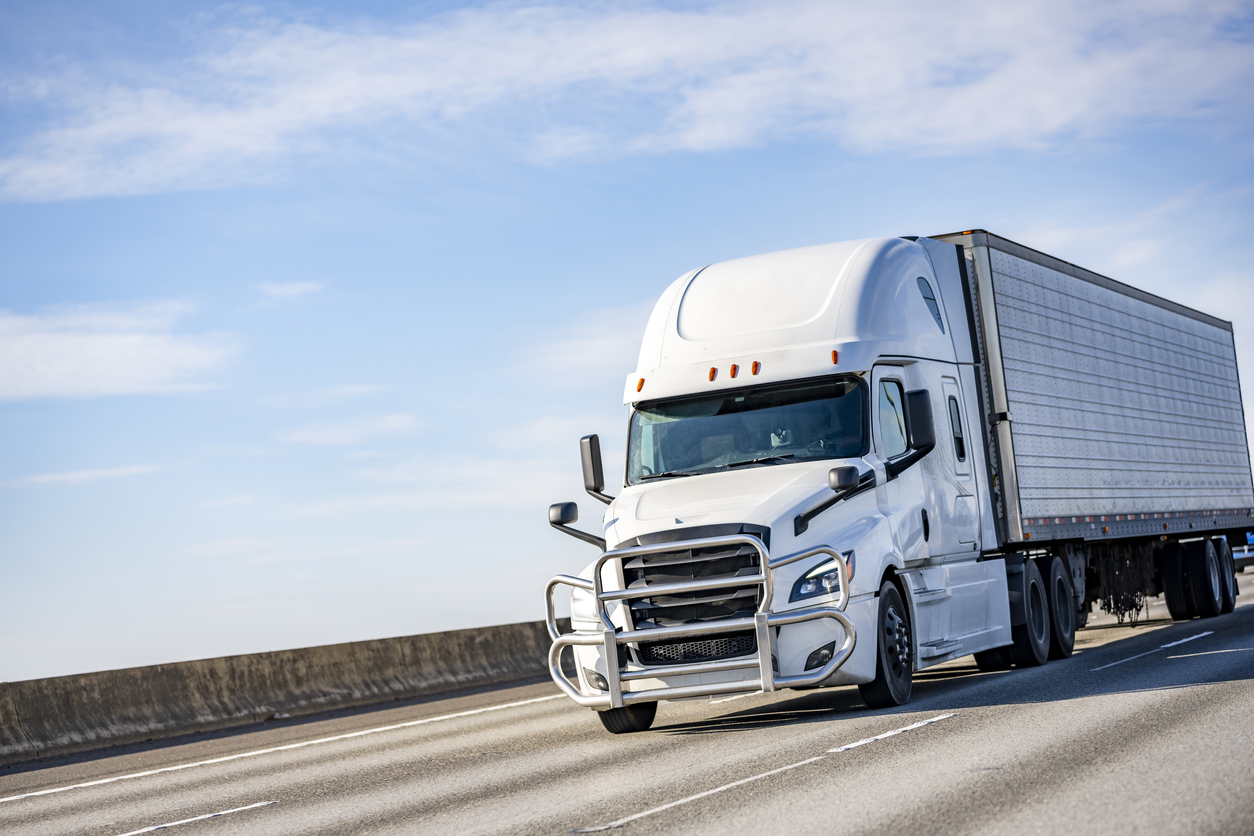
You see them on highways every day, pulling loads across long distances. They handle sharp turns and heavy cargo with a design built for efficiency. The name may sound strange at first, but it fits the way the vehicle works.
The term “semi-truck” comes from the way the trailer connects to the vehicle. The trailer doesn’t have a front axle, so it can’t stand without help. It leans on the tractor for support. That’s why it’s called a “semi-trailer.” Over time, people began calling the entire unit a semi-truck. If you’ve been involved in an accident, you can contact our truck accident lawyers in Seattle for your free initial consultation.
What Is a Semi-Truck?
Semi-trucks feature two parts: the tractor and the semi-trailer. The tractor contains the engine, axles, cab, and transmission. The cab holds steering controls, seats, rest space, and technology used during routes. Behind the tractor, the trailer connects through a secure fifth-wheel coupling.
The trailer attaches to the rear of the tractor and cannot stand without it. The fifth wheel on the tractor connects to the kingpin of the trailer. This joint allows sharp turns while supporting heavy freight.
The trailer varies depending on the type of freight. Flatbeds carry large equipment. Dry vans protect boxed goods. Refrigerated trailers move perishable products.
Safety systems include braking support, tire pressure sensors, and load distribution checks. Many trucks also carry GPS systems and electronic logs that help manage routes and federal compliance.
This configuration allows the vehicle to handle more cargo than box trucks or rigid-frame trucks. The tractor carries some of the trailer’s weight, which lowers fuel use and improves control. Drivers can switch trailers quickly. That flexibility helps companies load, haul, and unload goods without delays.
Trailer and Cab Connection
The fifth wheel coupling creates the hinge between the tractor and trailer. This design allows the trailer to turn and follow the tractor. That articulation helps drivers move through narrow areas or turn at sharp intersections. It also spreads out the load more evenly between axles.
The connection allows for fast trailer swaps. A driver can park, uncouple, and pull away with a new load in minutes. This reduces idle time and keeps goods in motion.
A firm connection also prevents sway or loss of control during storms or sudden braking. The system remains strong under pressure, ensuring safe passage through thousands of miles.
Semi-Truck vs. Full Trailer
The design sets a semi-truck apart from a full trailer. A full trailer has axles at the front and back. It does not need a fifth wheel or tractor unit to stand upright. Drivers attach full trailers behind a lead vehicle or another trailer. This setup increases length but reduces turning ability.
A semi-truck relies on the tractor to support the trailer. The front of the trailer lacks wheels and rests on the tractor’s rear frame. This allows sharper turns and tighter control, especially in narrow spaces or crowded terminals. Most shipping companies prefer this format because of its flexibility and ease of use.
The tractor design also improves safety. It balances the weight between tires and lets the driver respond more quickly to road changes. In contrast, full trailers offer less control and often struggle with balance when empty.
Contact the Truck Accident Lawyers at Darrell Cochran Personal Injury Lawyer for Help Today
If you suffered harm in a crash with a semi-truck, speak with a lawyer who handles truck accident cases. These cases often involve federal rules, commercial insurance, and complex liability. Our lawyers know how to analyze logs, inspect driver records, and challenge unsafe practices.
We review your case details, explain your rights, and pursue compensation when companies or drivers cause harm. We hold trucking firms accountable when they cut corners or ignore safety laws. You face medical costs, missed paychecks, and lasting injuries. We can help you seek payment for those losses.
For more information, contact an experienced truck accident lawyer at Darrell Cochran Personal Injury Lawyer to schedule a free consultation today.
Contact Our Truck Accident Law Firm in Seattle, WA
For more information, contact an experienced truck accident lawyer at Darrell Cochran Personal Injury Lawyer to schedule a free initial consultation. We have convenient locations in Seattle and Tacoma, Washington.
Darrell Cochran Personal Injury Lawyer – Seattle
701 5th Ave Suite 4300A, Seattle, WA 98104
(253) 948-0250
Darrell Cochran Personal Injury Lawyer – Tacoma
909 A St Ste 700, Tacoma, WA 98402
(253) 264-0225
